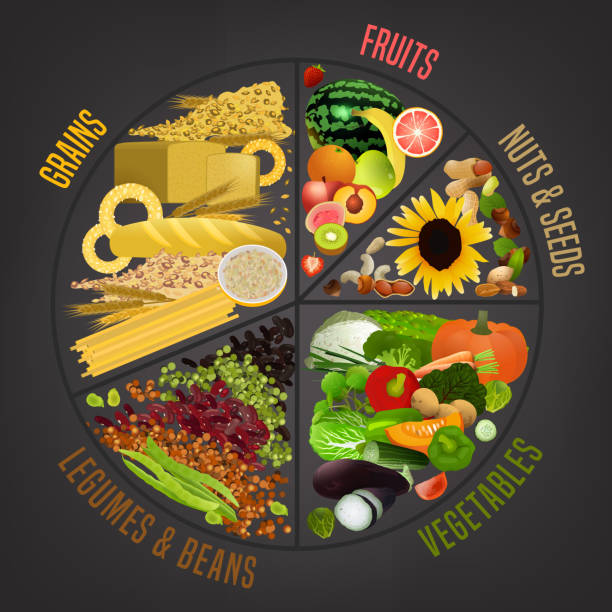
Introduction to the Ultimate Athlete Vegan Meal Plan Guide for Plant-Based Athletes
A plant-based diet is centered around plant foods, such as fruits, vegetables, whole grains, nuts, and seeds. This diet is rich in essential vitamins, minerals, and fiber, which are key components to building a strong, healthy body. The Ultimate Athlete Vegan Meal Plan Guide emphasizes the importance of this type of diet in fueling your workouts and achieving your athletic goals.
Next, let’s talk about protein. As an athlete, you may have heard that protein is essential for building and repairing muscle. It’s important to note that you don’t need to consume massive amounts of protein to build muscle. According to the Academy of Nutrition and Dietetics, athletes only require slightly more protein than sedentary individuals, which can easily be achieved through a plant-based diet.
Another critical component of an athlete’s diet is hydration. It’s essential to stay hydrated before, during, and after your workouts to prevent dehydration and maintain proper bodily function. The guide encourages drinking plenty of water and incorporating water-rich foods like fruits and vegetables into your meals. Electrolytes, such as sodium and potassium, are also important for proper hydration and can be found in bananas, avocados, and sweet potatoes.
How Many Times a Day Should I Eat? Meal Frequency for Optimal Performance
The human body is like a machine, and we need to refuel it regularly to keep it running smoothly. Experts generally recommend eating three meals a day- breakfast, lunch, and dinner- accompanied by a few nutrient-dense snacks. However, there’s no golden rule as to how many times a day we should eat. Some people prefer to eat six small meals a day, while others may stick to two or three large ones.
What’s essential is to meet your body’s daily macronutrient needs, which are protein, carbohydrates, and fats. The idea of consuming six small meals is to keep the metabolism going at a steady pace, avoiding dips and spikes in blood sugar levels. In contrast whole food, fasting for extended periods can slow down metabolism and lead to overeating later. Therefore, snacking on healthy foods like fruits, nuts, or yogurt can help minimize hunger pangs throughout the day.
For vegan athletes and muscle builders, snacking can be a crucial part of meeting daily protein requirements. Consuming protein every few hours ensures that the body receives a steady supply of muscle-building blocks called amino acids. In addition, post-workout snacks or meals help initiate the muscle repair process after exercise. Hence, protein-rich snacks like protein smoothies, tofu, or chickpeas can boost muscle growth and recovery.
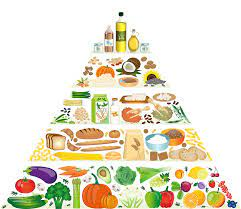
Eating Enough Calories on a Plant-Based Diet
There are three macronutrients that provide calories: carbohydrates, protein, and fat. Carbohydrates and protein both provide 4 calories per gram, while fat provides 9 calories per gram. This means that foods that are high in fat have more calories per serving than foods that are high in carbohydrates or protein.
As a vegan, you may be getting most of your calories from carbohydrates. This is because many plant-based foods, such as fruits, vegetables, whole grains, and legumes, are high in complex carbs. These are important for providing the energy your body needs for exercise.
However, you also need to make sure you’re getting enough protein. Protein is essential for building and repairing muscle tissue. Good sources of plant-based protein include beans, lentils, tofu, tempeh, seitan, and certain grains such as quinoa and buckwheat.
You also need to be getting enough healthy fats. Fats help your body absorb certain vitamins and minerals, and they’re essential for hormone production. Good sources of plant-based fats include nuts and seeds, avocado, coconut, and olive oil.
Sample Vegan Recipes for Athletes
Sample Vegan Recipes for Athletes:
1. Tofu Scramble: Scramble some tofu in a pan with vegetables like peppers, onions, and spinach. Add some turmeric and black pepper for some spice and antioxidant power.
2. Sweet Potato and Black Bean Chili: This hearty chili includes sweet potatoes, black beans, and plenty of spices like chili powder and cumin. Serve over rice or with a slice of crusty bread.
3. Quinoa and Vegetable Stir Fry: Cook up some quinoa and add in your choice of veggies like broccoli, carrots baked tofu, and snap peas. Toss with soy sauce, ginger, and garlic for added flavor.
4. Chocolate Peanut Butter Smoothie: Blend together frozen bananas, plant-based milk, cocoa powder, and a scoop of peanut butter for a delicious pre-workout or post-workout treat.
5. Chickpea Curry: This dish is loaded with plant-based protein and flavor. Cook chickpeas in a fragrant blend of spices like cumin, coriander, and turmeric. Serve over rice or with naan bread.
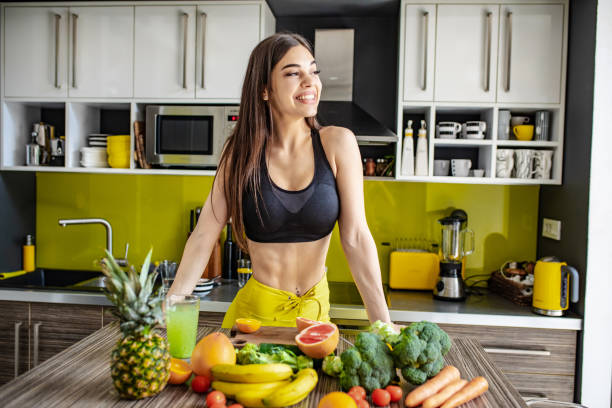
Pantry-Friendly Foods for Plant-Based Athletes
Here are some of the best pantry-friendly foods for plant-based athletes that are both nutritious and delicious.
1. Beans and Legumes
Beans and legumes are a great source of plant-based protein and can be used in a variety of dishes such as soups, stews, and salads. Some popular options include black beans, chickpeas, and lentils. They are also high in fiber, which can help promote healthy digestion and regulate blood sugar levels. Plus, they are easy to store in your pantry!
2. Nuts and Seeds
Nuts and seeds are high in protein and provide a good source of healthy fats. They can be snacked on or used as a topping for salads or oatmeal. Some popular options include almonds, pumpkin seeds, and chia seeds. Store them in airtight containers in your pantry to avoid spoilage.
3. Whole Grains
Whole grains such as quinoa, brown rice, and oatmeal are great sources of complex carbohydrates and provide essential nutrients such as fiber and iron. They can be used as a base for meals like stir-fries and can even be used to make protein-rich snacks like energy balls.
4. Canned Vegetables
Canned vegetables are convenient and can be used in various dishes, such as soups and stews. Some popular options include canned tomatoes, chickpeas, and corn. Make sure to choose canned vegetables with no added salt and rinse them before using them to reduce their sodium content.
5. Nutritional Yeast
Nutritional yeast is a popular vegan food that provides a cheesy flavor to dishes. It is also high in protein, fiber, and essential B vitamins. Sprinkle some on top of your popcorn, pasta, or roasted vegetables for a boost of flavor and nutrition.
Low FODMAP Vegan Meal Plan for Athletes
First things first- what should you eat on a Low FODMAP diet? It may seem daunting, but it’s quite simple. You’ll have to avoid foods that are high in FODMAP, such as garlic, onions, wheat, apples, and pears, to name a few. But don’t worry; there are plenty of other delicious vegan options!
Next, let’s review some meal ideas that are easy to prepare and perfect for athletes. Try a smoothie bowl with spinach, berries, coconut yogurt, and chia seeds for breakfast. Or, if you prefer something more filling, make scrambled tofu with tomatoes, bell peppers, and gluten-free bread.
Lunch is a great opportunity to fuel up your afternoon workout. Try a quinoa and cucumber salad with lemon tahini dressing or a brown rice stir-fry with steamed broccoli,, carrots, and tofu. You can also make a sandwich with gluten-free bread, lettuce, tomato, avocado, and hummus.
For dinner, consider making lentil and vegetable soup with green beans or roasted sweet potatoes stuffed with black beans, corn, and salsa. Or, if you’re in the mood for something more indulgent, try vegan chili with cornbread.
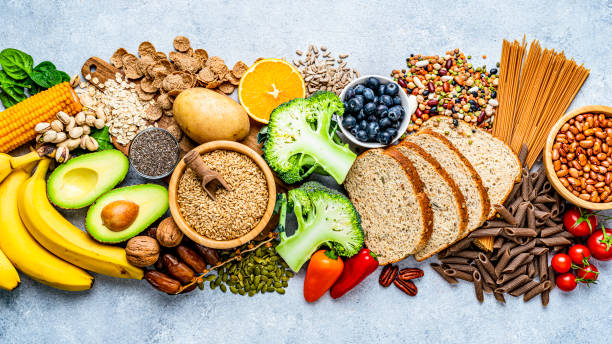
Fuel with Low-Sugar Carbs: Best Carb Options for Plant-Based Athletes
It is important to choose carbs that are low in sugar. We will discuss the best carb options to fuel your body with energy and maintain your vegan muscle-building routine.
1. Sweet Potatoes
Sweet potatoes are one of the best carb options for plant-based athletes. They are an excellent source of carbohydrates and are low in sugar. They are also packed with vitamins, minerals, and fiber, which can help improve digestion and provide long-lasting energy for your workouts.
2. Quinoa
Quinoa is a superfood loaded with protein, fiber, vitamins, and low-glycemic carbohydrates. It is a great option for plant-based athletes who are looking for an easy-to-digest carb source. Quinoa also helps to keep your blood sugar levels stable, which can help improve your overall health.
3. Oats
Oats are considered a superfood as well. They are a great source of carbs, protein, and fiber. They are also low in sugar and provide energy for your body without causing spikes in your blood sugar levels.
4. Brown Rice
Brown rice is another excellent carb option for plant-based athletes. It is a complex carbohydrate that provides sustained energy for your workouts. It is also a good source of vitamins, minerals, and fiber.
5. Fruits
Fruits such whole foods such as bananas, apples, and oranges are great sources of carbs that are low in sugar. They provide natural sugars that can help fuel your workouts and provide your body with essential vitamins and minerals.
How to Calculate Your Macro Needs as a Vegan Athlete
Macros or macronutrients are three primary items that provide the energy your body needs to build and repair muscles, fat tissue, and all other metabolic activities. These are protein, carbohydrates, and fats. Proper consumption of macros will allow your body to build muscles efficiently, but getting the balance right can help you avoid eating too little or too much of any one type of nutrient.
The next step to calculate your macro needs is to determine what your fitness and health goals are. For example, a vegan athlete looking to bulk up will require more carbohydrates and protein, whereas someone focused on weight loss might consume more fat. A general rule of thumb for muscle builders is to aim for 1.6 to 2.2 grams of protein per kilogram of body weight and up to 4 grams of carbohydrates per kilogram of body weight. It is also crucial to consume a high amount of healthy fats, which can be found in sources such as avocados, nuts, chia seeds, and coconut oil.
Once you have set your fitness and health goals, you need to calculate your daily caloric intake. To get an estimate of your daily calorie intake, you can use a macro calculator or formula. One popular formula is the Harris-Benedict Equation, which calculates how many calories your body needs based on your age, height, weight, and activity level. This calculation will give you an estimation of how many calories you need to maintain your current weight. To add muscles, you need to add more calories than the maintenance amount.
Now that you have your daily caloric intake figured out distribute the calories to the different macronutrients appropriately. For example, if you are consuming 2,500 calories a day, the protein intake should account for 25-30% of those calories, carbohydrates should account for 50-55%, and fats should account for 15-20%. With simple calculations, we could estimate protein to be 156-220 grams per day, carbohydrates to be 312-352 grams per day, and fats to be 45-56 grams per day for someone consuming 2,500 calories.
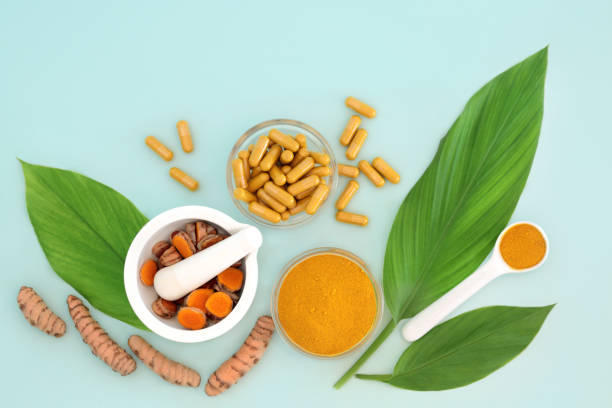
Supplements for Plant-Based Athletes: What to Consider
Here’s what you need to consider when choosing supplements as a plant-based athlete.
1. Protein Supplements
Protein is essential for muscle growth and recovery, and it’s particularly important for plant-based athletes who don’t consume meat or dairy. While you can get plenty of protein from sources like beans, nuts, and seeds, protein supplements can provide an additional boost. Look for plant-based protein powders from sources like peas, rice, or even hemp seeds. These supplements are typically high in protein and low in carbs and fat, making them ideal for post-workout recovery. Be sure to check the ingredients and avoid products that contain added sugars or other additives.
2. B12 Supplements
B12 is a nutrient primarily found in animal-based foods, so vegans and vegetarians need to supplement their diets with B12. This vitamin is essential for proper brain function and healthy blood cells. Look for B12 supplements that contain methylcobalamin, the most bioavailable form of B12. The recommended daily dose for adults is 2.4 mcg, but the dosage may vary based on individual needs.
3. Omega-3 Supplements
Omega-3 fatty acids are essential for heart health, brain function, and reducing inflammation. While plant-based sources of omega-3s, like flaxseed and chia seeds, are beneficial, they don’t provide the same benefits as their animal-based counterparts. Algae-based omega-3 supplements are good for plant-based athletes, as they contain the same EPA and DHA found in fish oil supplements. Look for vegan omega-3 supplements certified by third-party organizations like the Marine Stewardship Council.
4. Vitamin D Supplements
Vitamin D is critical for bone health, immune function, and reducing the risk of chronic disease. While sunlight is the best source of vitamin D, it can be challenging to get enough, especially during certain times of the year or if you live at a high altitude. As a plant-based athlete, look for vegan vitamin D supplements that contain vitamin D3, the most bioavailable form of the nutrient. The recommended daily dose varies based on individual needs and factors such as age and lifestyle.
5. Creatine Supplements
Creatine is a naturally occurring compound that helps to produce energy during high-intensity exercise. While it is found in small amounts in plant-based foods like beans and nuts, supplementing with creatine can help athletes increase their muscle mass, strength, and endurance. Look for vegan creatine supplements that are made using a high-quality source of creatine monohydrate. Also, make sure to follow the recommended dosage instructions.
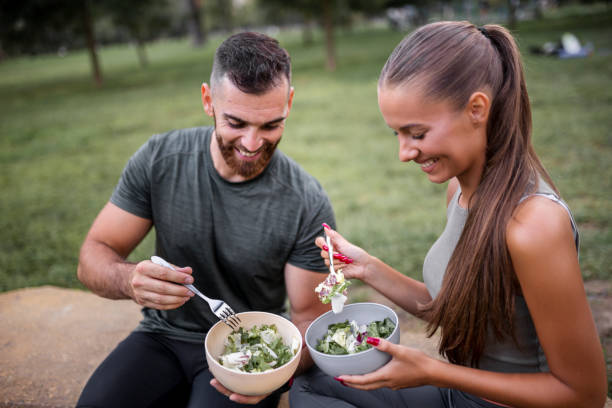
Natural Pre-Workouts for Plant-Based Athletes
1. Beetroot Juice:
Beetroot juice is a powerhouse of nitrates that helps in vasodilation (the expansion of blood vessels), leading to improved energy levels and endurance. A study published in the Journal of Applied Physiology found that beetroot juice improves exercise performance by up to 16%! It also contains antioxidants that reduce muscle damage due to exercise. An 8-ounce glass of beetroot juice is recommended for pre-workout use.
2. Dried Figs:
Figs are a natural source of glucose that is essential for energy production. They’re also high in fiber, making them a great pre-workout snack as they keep you feeling fuller for longer. Figs are incredibly versatile, and you can eat them fresh, sun-dried, or in a smoothie.
3. Green Tea:
Green tea is loaded with antioxidants called catechins, which have anti-inflammatory properties and help in reducing muscle soreness. It also contains caffeine, a natural stimulant that boosts energy levels and mental alertness. Drinking a cup of green tea or taking green tea supplements 40-50 minutes before exercise is recommended.
4. Chia Seeds:
Chia seeds are an excellent protein, fiber, and omega-3 fatty acids source. They release energy slowly, keep you fueled during exercise, and help muscles recover after workouts. Mix 1-2 tablespoons of chia seeds in water and consume 30 minutes before your workout.
5. Sweet Potato:
Sweet potatoes are starchy vegetables rich in carbohydrates, fiber, potassium, and vitamin A. They provide a steady supply of energy, making them perfect pre-workout food. Roast or boil sweet potatoes and consume them 2-3 hours before your workout for maximum benefits.
Post-Run Breakfast – Rolled Oats and Fruit Breakfast Bowl Recipe
Why Is Post-Run Breakfast Important?
After an intense workout, your body requires replenishment of proteins, carbohydrates, and vitamins. A post-run breakfast is the perfect way to give your body these nutrients. It helps restore glycogen storage in your muscles, preventing muscle breakdown. Additionally, consuming breakfast after your workout is an excellent way to boost your energy levels for the rest of the day.
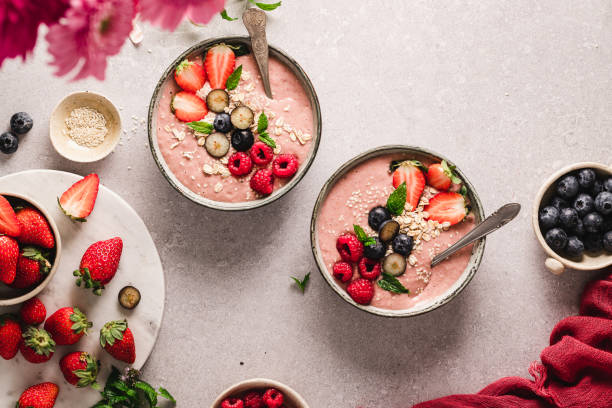
How to Make Rolled Oats and Fruit Breakfast Bowl?
Making rolled oats and fruit breakfast bowl is straightforward and requires simple ingredients. Here are the steps to make this recipe:
1. Boil one cup of water in a pot and add 1/2 cup of rolled oats.
2. Allow the oats to cook for 10-15 minutes while stirring occasionally.
3. Once the oats are cooked, transfer them to a bowl.
4. Add a cup of mixed berries (raspberries sliced almonds, blueberries, and strawberries) to the bowl.
5. Sprinkle chopped nuts on top of the bowl, such as almonds or cashews.
6. Drizzle some honey or maple syrup on top of the bowl.
What Ingredients to Use?
The critical ingredients for this recipe are rolled oats and mixed berries. Rolled oats are an excellent source of fiber and protein, which is crucial for muscle recovery. Mixed berries are a rich source of antioxidants, which can help reduce muscle inflammation. Additionally, adding chopped nuts and a drizzle of honey or maple syrup will add extra flavor and texture to your breakfast bowl.
Eating Around Workouts: Pre- and Post-Workout Meal Ideas
Pre-Workout Meal Ideas
1. Overnight Oats: Mix rolled oats, chia seeds, some almond butter, milk, and a tablespoon of peanut butter. Leave it overnight in the fridge, and you’ll have a tasty and nutritious breakfast waiting for you in the morning.
2. Smoothie Bowl: Blend frozen bananas, spinach, almond milk, and protein powder. Top it with some chopped nuts, berries, and shredded coconut.
3. Sweet Potato Toast: Cut sweet potatoes into thin slices and toast them. Top it with smashed avocado, cherry tomatoes, and pumpkin seeds.
Post-Workout Meal Ideas
1. Vegan Chili: Cook your favorite beans with some veggies like onion, pepper, and corn. Add some tomato sauce, spices, and let it simmer for about 30 minutes. Serve it with rice, quinoa, or tortilla chips.
2. Tempeh Stir-Fry: Cut tempeh into small pieces and stir-fry it with some veggies like broccoli, carrot, and snow peas. Season it with soy sauce, garlic, and ginger. Serve it with brown rice or noodles.
3. Tofu Scramble: Sautee some veggies like onion, bell pepper, and spinach. Crumble tofu and add it to the pan. Season it with turmeric, nutritional yeast, and salt. Serve it with whole wheat toast or avocado.
Recover with Your Post-Workout Meal: Best Food Options for Muscle Recovery
Eating the right kind of food after your workout is crucial since this is when your body has the most opportunity to absorb nutrients. It would be best if you aimed to eat a meal within 30 minutes of finishing your exercise to prevent muscle breakdown. Here are some of the best food options for muscle recovery:
1. Quinoa: This vegan staple is an excellent source of protein and contains all nine essential amino acids needed for muscle growth and recovery. Quinoa also has a high fiber content, which keeps you feeling full.
2. Nuts and Seeds: Nuts and seeds, such as almonds and chia seeds, are packed with protein, healthy fats, and fiber. They provide a slow release of energy to your body that is sustained throughout the day
3. Sweet Potatoes: Sweet potatoes are a source of complex carbohydrates that are essential for your body to produce glycogen, a form of glucose stored in your muscles and liver. Sweet potatoes can also provide Vitamin C and B vitamins.
4. Legumes: Legumes, such as lentils and chickpeas, contain complex carbohydrates, fiber, protein, and various vitamins and minerals that help your muscles recover and grow. They are also an excellent source of iron, which helps keep your energy levels up.
5. Leafy Greens: Leafy greens, like spinach and kale, are packed with nutrients such as magnesium and calcium that help with muscle recovery and growth. They also contain essential vitamins and minerals that the muscles need to function correctly.

Use Hydrating Sports Drinks for Optimal Performance
1. Why are hydrating sports drinks important for optimal performance?
Muscles need water and electrolytes to function properly. When you exercise, you lose fluids and electrolytes through sweat. If you replace these fluids and electrolytes, your performance can improve. Hydrating sports drinks can help to prevent dehydration, which can impair your performance and cause fatigue. Additionally, sports drinks can provide a source of carbohydrates, which can help to fuel your muscles during exercise.
2. How do you choose the right hydrating sports drink?
When choosing a sports drink, it’s important to look for one that contains the right balance of electrolytes and carbohydrates. Look for drinks that contain sodium, potassium, magnesium, and calcium. These electrolytes help to regulate fluid balance in your body and prevent dehydration. Carbohydrates are also essential, as they provide energy for your muscles. Look for drinks that contain around 14 grams of carbohydrates per 8-ounce serving.
3. How do you use hydrating sports drinks during exercise?
It’s important to drink before, during, and after exercise. Start drinking 16-20 ounces of a hydrating sports drink 2-3 hours before your workout. Then, drink 7-10 ounces every 10-20 minutes during exercise. After exercise, drink another 16-24 ounces within 2 hours to aid in recovery and prevent dehydration.
4. How do you make your own hydrating sports drink?
If you prefer to make your own hydrating sports drink, it’s easy to do so! Mix together water, fruit juice, and a pinch of salt. You can also add honey or maple syrup for additional carbohydrates. This homemade sports drink will provide the hydration and energy you need to power through your workouts.
Tips for Plant-Based Meal Prepping: Make Meal Planning Easy
1. Stick to simple meals
One of the biggest obstacles to meal prepping is trying to make complex meals with lots of ingredients. It’s essential to keep things simple. Choose meals with just a few elements easily prepared in bulk. Bean burritos, pasta with marinara sauce, and stir-fries are all great options.
2. Batch cook
Why not make enough for multiple meals if you’re making a meal? Batch cooking is a great way to save time and ensure you always have food ready. For example, you could cook a big pot of brown rice and steam some vegetables, then mix them for a quick and easy meal.
3. Use the freezer
Another way to save time is to prep meals in advance and freeze them. This is especially helpful for days when you know you’ll be busy or don’t have time to cook. Make a big batch of vegetable soup or chili and store it in the freezer for a quick and easy meal later.
4. Plan ahead
One of the keys to success when it comes to meal prepping is to plan. Sit down and make a list of the meals you want to make for the week, then shop accordingly. Make sure you have all the ingredients you need before you start cooking your meal plans so you don’t have to take time away from meal prep to run to the store.
5. Keep it fun
Meal prepping doesn’t have to be a chore! Get creative and have fun with the meals you make. Try new recipes and ingredients, and involve your family or friends in the process. When you enjoy the food you’re eating, you’ll be more likely to stick to your plant-based eating goals.
Reduce Consumption of Inflammatory Foods to Support Athletic Performance
Let’s define inflammatory foods. These are foods that contain compounds that increase inflammation in the body, such as processed sugars, refined carbohydrates, and saturated fats. Inflammation can cause redness, swelling, and even pain in the body, which can hinder athletic performance. So to perform at your best, you want to focus on eating anti-inflammatory foods that help reduce inflammation in the body. These include fruits, vegetables, nuts, seeds, whole grains, and healthy fats like avocado and olive oil. Try to fill your plate with a rainbow of different colored fruits and veggies, as each color contains different antioxidants and anti-inflammatory properties.
Secondly, let’s discuss specific foods to avoid. One of the biggest culprits of inflammation is sugar, especially in the form of processed snacks and drinks. Instead, opt for natural sugars found in fruits and honey. Another culprit is dairy, which can cause inflammation in sensitive individuals. You can still get your calcium from plant-based sources like leafy greens, almonds, and tofu. Lastly, try to limit your intake of processed and fried foods, as they contain harmful trans fats that can increase inflammation in the body.
Now, let’s talk about the benefits of reducing the consumption of inflammatory foods. Firstly, it can help reduce muscle soreness and inflammation after a workout, allowing you to recover faster and perform better in your next workout. It can also improve your immune system, as chronic inflammation can weaken your body’s defense against illness. Lastly, it can improve your overall health, as inflammation has been linked to chronic diseases such as diabetes, heart disease, and cancer.
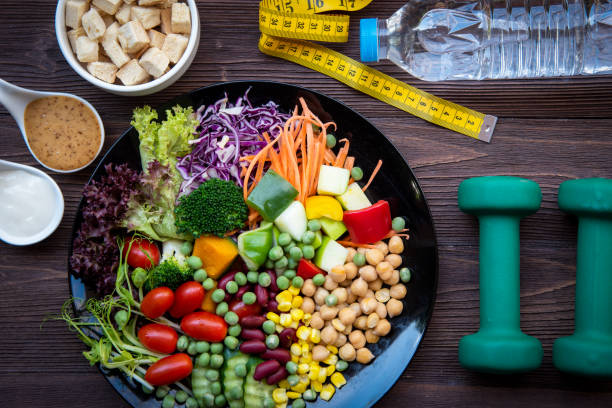
Benefits of a Vegan Diet for Athletes
Firstly, plant-based foods are rich in nutrients that are essential for optimal health and performance. For example, fruits and vegetables contain high amounts of antioxidants, which can help reduce inflammation in the body and speed up recovery time from workouts. Additionally, whole grains like quinoa and brown rice have complex carbohydrates that provide sustained energy for athletes during training and competitions.
Secondly, a vegan diet can help athletes to lose weight and maintain a healthy weight and body composition. Since plant-based foods are lower in calories and saturated fats than animal-based foods, athletes can consume more food without compromising their weight or overall health. Athletes can eat more fruits, vegetables, and whole grains to meet their daily energy and nutrient needs.
Thirdly, a vegan diet has been shown to improve cardiovascular health. Plant-based foods have been proven to reduce the risk of heart disease, lower cholesterol levels, and improve blood pressure. This is especially important for athletes who must keep their heart and cardiovascular systems in top shape to perform at their best.
Lastly, a vegan or vegetarian diet can help reduce the risk of injury and inflammation due to its anti-inflammatory effects. Plant-based foods have been shown to reduce inflammation in the body, which can help athletes recover more quickly from injuries and workouts. Athletes can return to the game faster and without compromising their health.


Leave a Reply